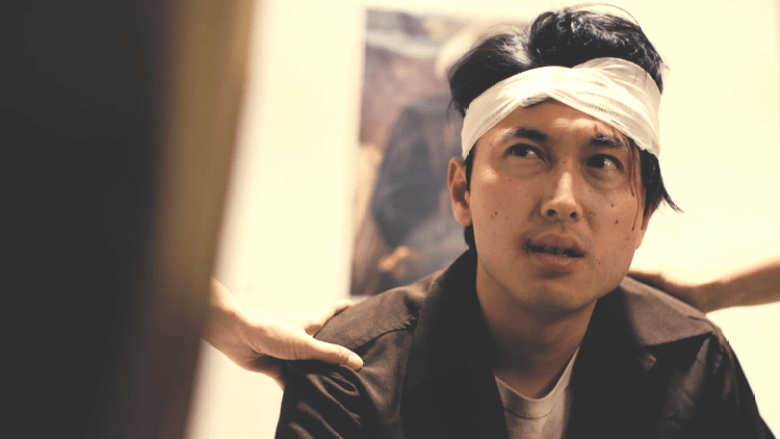
By ELLEN ENDO, Rafu Shimpo
In “We Said, ‘No, No,’” director Brian Tadashi Maeda cinematically takes the audience inside the largest and most tightly secured of the World War II camps: Tule Lake Segregation Center. At its height, Tule Lake held approximately 18,000 prisoners of Japanese descent. Its stockade was dubbed “a prison within a prison.”
The result is a hybrid documentary that seamlessly incorporates actual footage, historic still photos, dramatizations, re-enactments, and interviews.
Maeda’s film dispels the perception that the 120,000-plus Japanese Americans were a compliant, homogenous group that went meekly into the camps following Japan’s attack on Pearl Harbor.

The story is shaped by two writings — a dissertation by anthropologist Rosalie Hankey Wax and the diary of Tatsuo Inouye. Wax, who was in her mid-20s at the time, chose Tule Lake as a case study. She spent months in the camp, talking to prisoners, and recounting the growing discontent.
Inouye’s writings provide a personal context as he articulates the injustice and frustration, especially among the Kibei, those born in America but educated in Japan.
Dramatic tension, played out in well-acted scenes, recreates the conditions that made Tule Lake an infamous wartime camp and stoked conflicts with certain entities, including the camp administrators and those JAs working as informants for the authorities.

“We Said, ‘No, No’” represents a years-long journey for Maeda, who also produced and acts in the film.
The title stems from Questions 27 and 28 on the loyalty questionnaire, which was used to identify and segregate potential dissidents as well as recruit draft-age men for military duty.
Maeda’s family spent the war years in Manzanar. He graduated from UCLA in cinematography and became one of the first Asian Americans to be accepted in the Hollywood International Cinematographers Guild in the 1970s.
His film opens Friday, May 26, for a one-week run at the Laemmle Royal Theatre, 11523 Santa Monica Blvd., West Los Angeles. For showtimes and tickets, visit https://www.laemmle.com/theater/royal or call (310) 478-0401.